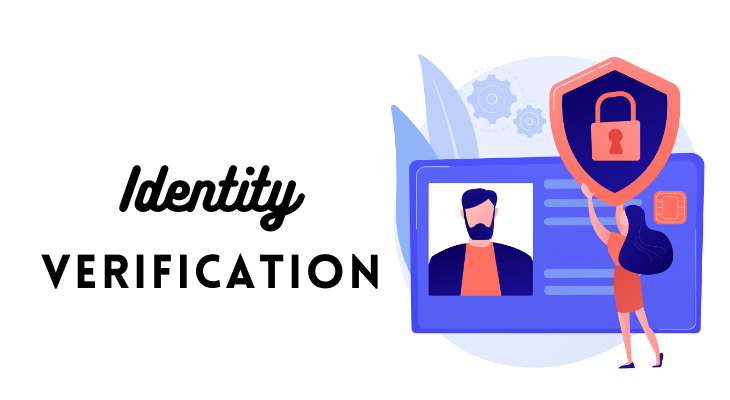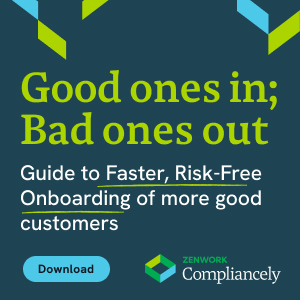
What Is Identity Verification
In the past, businesses in the financial, banking, lending, and insurance industries got burned for not having proper identity verification processes in place prior to the AML and ATF regulations. However, as technology progressed, so did financial and identity fraud. Identity fraud in particular took various shapes and forms as the years unfolded.
Be it financial fraud or identity fraud, the explicit target or objective of the perpetrators has always been the same–stealing data and accessing monetary funds, thereby compromising the financial ecosystem of the enterprise economies.
With the rise of technology, the volume of identity fraud instances has surged, making it almost impossible for businesses to onboard quality, compliant profiles.
Identity verification technology and products, such as Compliancely, however, are enabling businesses to identify, validate, and verify the real identities of individuals and entities in real-time, leaving no room for risk and ambiguity.
The inherent need to prevent risk and to onboard compliant profiles pushed the BSFI industry to look out for solutions that would address.
1) Identity duplication
2) Identity fraud
3) Financial fraud (a consequence of not paying attention to identity fraud).
And the successive result was the birth of identity verification infrastructure – a dynamic compliance process that enables businesses to identify, validate, and verify the real identities of incoming profiles (individuals and businesses).
Since the inception of identity verification, financial ecosystems were quick to adopt it to avoid risk and improve the quality of compliant profiles onboarded.
Further, identity verification offers a variety of benefits, right from risk prevention and assessment, to protect your business from accidental civil violations that bring financial and reputational liabilities.
The following will discuss and define identity verification, its mechanism, uses, and adaptability across a variety of industries.
So, let’s get to it.
Defining Identity Verification
Identity verification is the process of verifying the real identities of a person or an entity. Banking institutions, for example, need certain identity documents, such as the social security card, address proof, and the basic identity information from the incoming profile (a customer). The identities of the incoming profile are validated against the authorized data lists to ensure that a profile is real and credible.
In recent years, identity forging, identity theft, and identity fraud have been major threats to the know your customer (KYC) verification processes of the compliance ecosystem. Incorporating identity verification in your internal compliance processes will help regulate and streamline the onboarding process and prevent your business from accepting profiles that pose risk.
Identity verification, in a nutshell, is the very process of verifying the real identities of a profile. This is an extremely useful practise to stay compliant and when adapted into your CIP and KYC processes, it helps accelerate the customer onboarding and account opening experiences.
Mechanism Of Identity Verification
In the self-explanatory context, identity verification allows businesses to verify the identities of a profile against a reliable and authorized data list. When you want to open a savings account, the bank usually asks for some form of ID along with some proof.
Now, remove the ambiguity here, and you’ll see what the bank is really asking for is government-recognized and accepted forms of identity and proof to support your identity claims.
Prospects are usually asked to provide their social security number, name, place of birth, address, and other information in accordance with the official records of the social security administration.
The obtained information is validated against the official records to make sure that the identity records match the data lists. This assures the bank that the identity claims match the records.
Uses of Identity Verification Across Industries
Compliance has been regulated and enforced at such a great speed that within the last decade, every industry had to adapt to identity verification in one way or another. However, this regulatory practice also brings with it the biggest advantage of all – risk prevention.
Here’s how businesses across various enterprise industries have adapted to the identity verification ecosystem.
BFSI industries: Verifying the identities of incoming customer profiles is a necessity for businesses in the BFSI economy. Right from validating the legal name, social security number, or EIN (for entities), to checking the incorporation details of a business with SOS Entity data list to checking if an individual has been sanctioned by the federal agency, identity verification transforms and scales in accordance with the scope of your investigations.
E-commerce, retail, manufacturing, and logistics: Apart from verifying the basic identities, you will also need to check operational permits, trade licenses, certifications, and other official documentation to conduct and enforce a business arrangement. Identity verification enables this with ease when incorporated into the compliance protocol ecosystem.
Healthcare: Ensuring that the medical staff and professionals are authorized to work in certain geographies and have the permission to execute their license is critical. Further, verifying if a medical professional is eligible for certain grants from the federal government is important.
While these are just a couple of aspects, the identity verification process for the healthcare industry is exhaustive and requires the compliance teams to work with real-time identity verification solutions for accuracy.
Incorporating Identity Verification For Your Business
As vast and dynamic as it is, identity verification is also relatively an easy compliance tool with which you can accommodate your internal teams. It helps optimize your KYC verification, customer identification process, and gives useful insights for due diligence.
Identity verification is usually placed at the start point of the business lifecycle as a barrier that prevents your organization from onboarding non-compliant profiles. This is also why EU’s AML directives are recommending businesses and financial institutions to approach identity verification as a commonplace to establish a foundational relationship with the incoming profile prior to onboarding. This allows the bank or the agency to understand and assess the credibility of a profile with a magnified perspective.
The practice of verifying incoming profiles prior to onboarding prevents your business from associating and engaging with high-risk profiles, such as sanctioned individuals and entities, financially unstable profiles, money launderers, terrorism financing groups and entities, specially designated profiles, and other restricted individuals and entities that are seen as a threat to national security.
Compliancely, a real-time identity verification powerhouse, simplifies the process of incorporating and adapting identity verification into your ecosystem. Verify millions of profiles within minutes in real-time, and give your compliance operations the speed and accuracy they need.
Further, you can import your data to Compliancely or outsource your identity verification protocols to our API and verify millions of profiles quickly with minimal effort. What’s more? Compliancely is connected directly with the source, which means your identity checks are powered with government-authorized data lists. No more privacy control issues. No more third parties.
